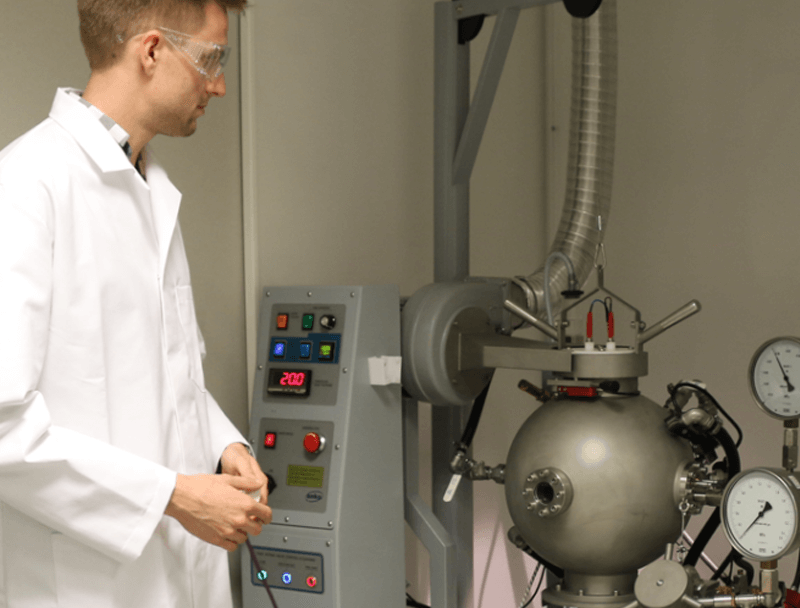Dust and Powder Flammability Testing
BS EN 14034 part 3 / ASTM E1515
The minimum explosive concentration test is conducted to determine the minimum quantity of powder dispersed in air, as a dust cloud that will ignite. Working through a range of decreasing powder concentrations, the powder is dispersed into a 20L explosion vessel (sphere) using, dry compressed air. These suspended dust clouds are then exposed to a large 2 kJ chemical ignition source and any ignition and following explosion is monitored, measured and recorded. The powder concentration is reduced until ignition is not possible and the MEC established.

Data generated by the minimum explosive concentration test is predominantly used to either ensure that levels of airborne dust are kept below that to form a flammable atmosphere or to confirm a material is appropriate for processes with an established LEV or set dust extraction rate.

Dust Combustibility (Group A/B)
Read More
Minimum Ignition Energy (MIE)
Read More
Minimum Ignition Temperature (MIT)
Read More
Layer Ignition Temperature (LIT)
Read More
Burning Behaviour
Read More
Explosion Severity (Pmax, Kst)
Read More© 2024 Sigma-HSE (India) Pvt Ltd | Registered in India No. U93000DL2014PTC266010 | Designed By WebClixs